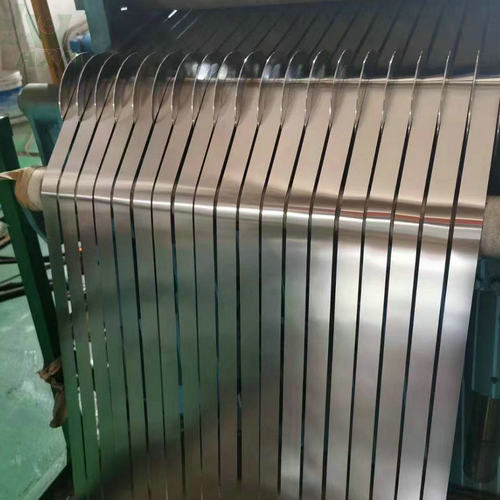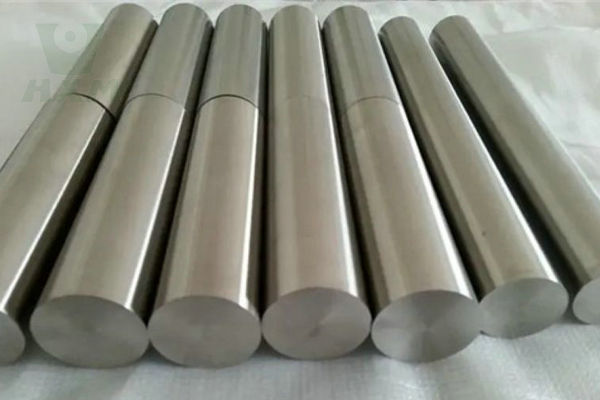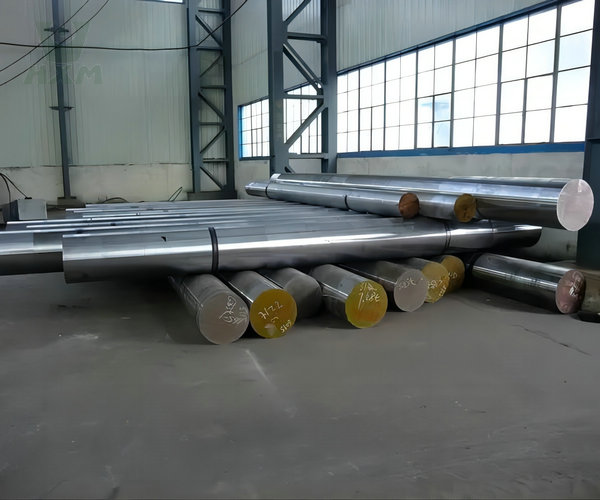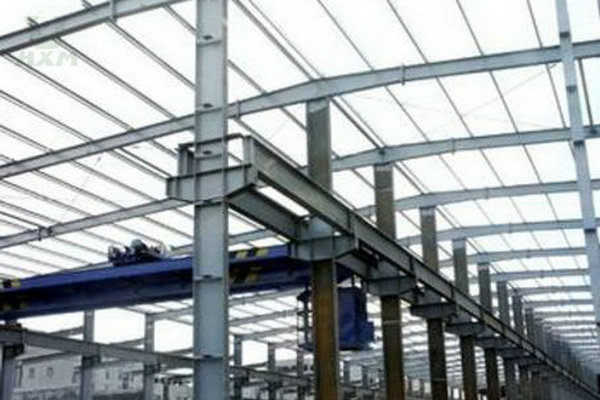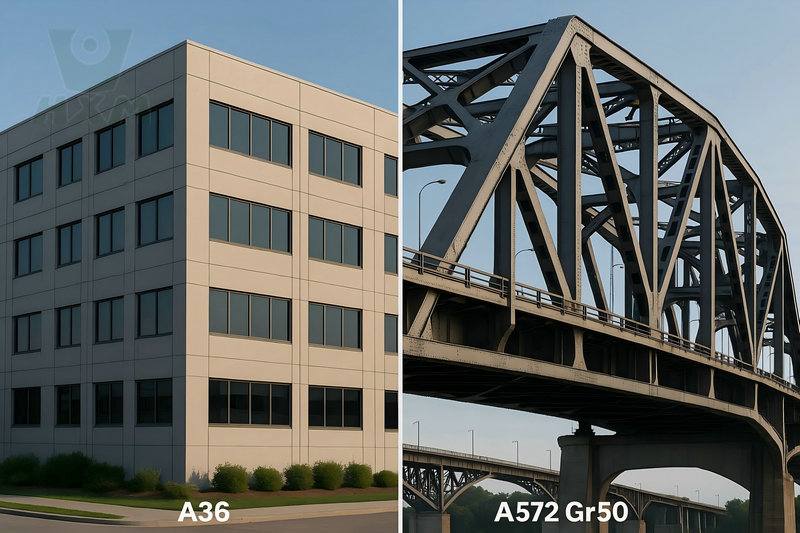When selecting materials for demanding environments, choosing the right alloy is critical. Hastelloy vs stainless steel are both common choices in industry due to their superior properties. Understanding their differences can help you make an informed choice to ensure durability, cost-effectiveness, and performance.
This article will explore the key characteristics of Hastelloy vs stainless steel, contrast their properties, and provide you with recommendations for use in specific applications.
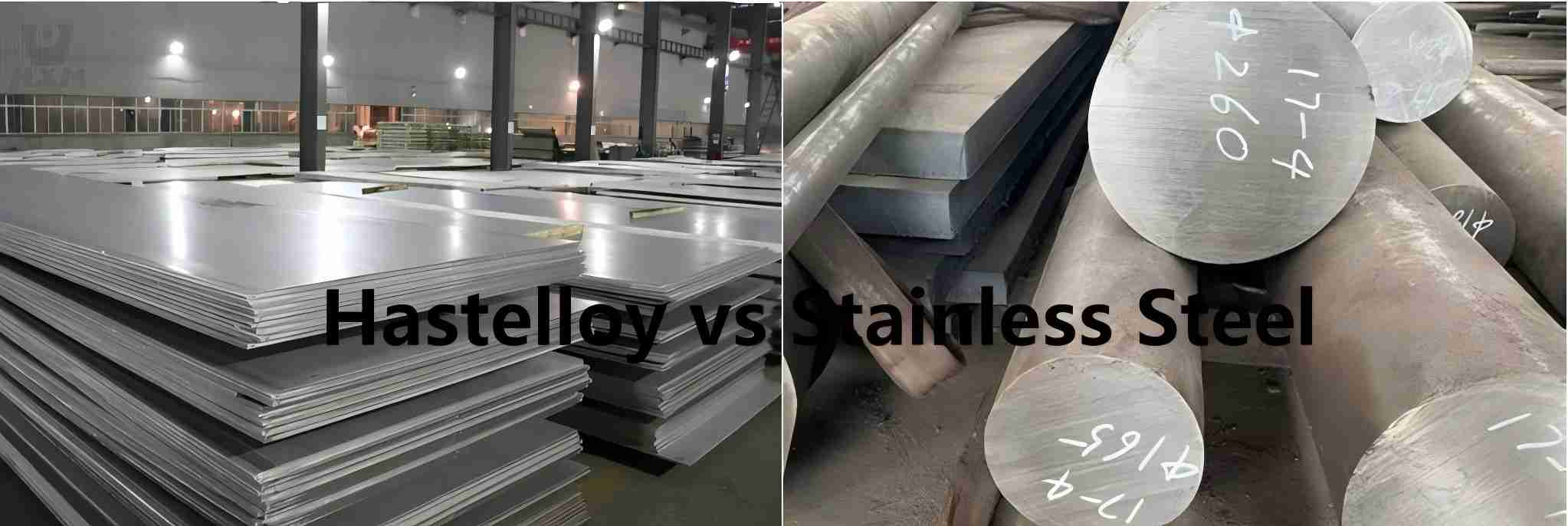
What is Stainless Steel?
Stainless steel is an iron-based alloy that contains chromium, which makes it corrosion-resistant. Common grades include 304, 316 and 430 stainless steel. Depending on its chemical composition, stainless steel offers different levels of performance and is ideal for applications such as construction, food processing and medical equipment.
What is Hastelloy Alloy?
Hastelloy is a nickel-based alloy known for its exceptional corrosion resistance and high temperature stability. Common grades such as Hastelloy C-276 and Hastelloy C-22 are widely used in the chemical processing, petrochemical and marine industries. The unique combination of nickel, molybdenum and chromium gives Hastelloy excellent resistance to pitting, stress corrosion cracking and resistance to oxidizing atmospheres.
Hastelloy vs Stainless Steel: What Are Their Differences?
Hastelloy Steel vs Stainless Steel Chemical Composition:
| Element | Hastelloy C-276 (%) | Stainless Steel 316 (%) |
|---|---|---|
| Ni | 57.0 | 10.0 – 14.0 |
| Cr | 14.5 – 16.5 | 16.0 – 18.0 |
| Mo | 15.0 – 17.0 | 2.0 – 3.0 |
| Fe | 4.0 – 7.0 | Balance |
| W | 3.0 – 4.5 | – |
| C | ≤ 0.01 | ≤ 0.08 |
| Mn | ≤ 1.0 | ≤ 2.0 |
| Si | ≤ 0.08 | ≤ 1.0 |
| P | ≤ 0.04 | ≤ 0.045 |
| S | ≤ 0.03 | ≤ 0.03 |
- Hastelloy has higher nickel and molybdenum contents, making it more resistant in extreme corrosive environments.
- Stainless steel 316 is the choice for moderately corrosive environments due to its lower cost and wider availability.
Hastelloy vs Stainless Steel Mechanical Properties:
| Performance | Hastelloy C-276 | Stainless Steel 316 |
|---|---|---|
| Tensile Strength (MPa) | 690 – 785 | 515 – 620 |
| Yield Strength (MPa) | 283 – 355 | 205 |
| Elongation (%) | 40 – 55 | 40 – 50 |
| Hardness (HB) | 200 – 240 | 150 – 217 |
| Impact Toughness (J) | high | Medium |
Hastelloy vs Stainless Steel Physical Properties:
| Physical Property | Hastelloy Alloy | Stainless Steel |
|---|---|---|
| Density | 8.89 g/cm³ | 7.85 g/cm³ |
| Melting Point | 1315-1371°C | 1400-1450°C |
| Thermal Conductivity | 8-15 W/m·K | 14-20 W/m·K |
| Specific Heat Capacity | 0.4 J/g·K | 0.5 J/g·K |
| Coefficient of Expansion | 13-15 µm/m·K | 15-17 µm/m·K |
| Electrical Resistivity | 0.87-0.90 µΩ·cm | 0.72-0.75 µΩ·cm |
| Tensile Strength | 700-1000 MPa | 500-750 MPa |
| Yield Strength | 400-650 MPa | 200-400 MPa |
| Elongation | 30-60% | 30-50% |
| Hardness | 90-200 HB | 150-200 HB |
| Corrosion Resistance | Extremely high | Good, depends on the stainless steel grade (e.g., 304, 316) |
Hastelloy vs Stainless Steel Applications:
Hastelloy alloys are best suited for extreme, highly corrosive environments where resistance to strong acids, high temperatures, and chemical reactions is critical. These alloys are often used in chemical processing, aerospace, power generation, and marine industries.
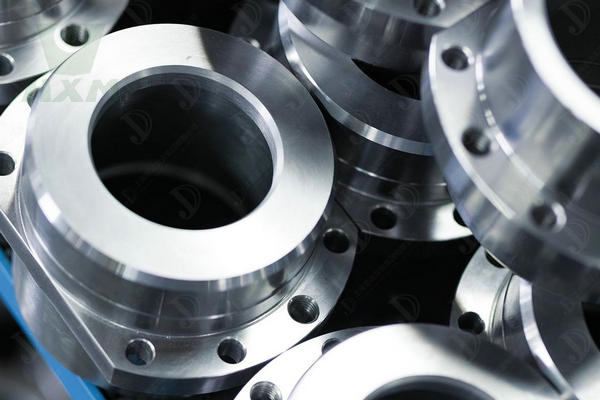
Stainless steel is more commonly used in general industrial applications that require corrosion resistance, durability, and ease of maintenance, but do not require the extreme performance of Hastelloy alloys. It can be used in food processing, medical devices, pharmaceuticals, and construction.
Hastelloy vs Stainless Steel Prices:
Hastelloy alloys are much more expensive than stainless steel because they contain more rare and expensive materials such as nickel, molybdenum, and chromium. These alloys are designed for extreme environments that require excellent corrosion resistance, high-temperature stability, and chemical resistance, so they are more specialized and cost more.
In contrast, stainless steel is more affordable because it is mass-produced using common materials such as iron, chromium, and lower levels of nickel. While it still has good corrosion resistance, it is generally used in less demanding applications than Hastelloy alloys.
Hastelloy Alloy vs Stainless Steel Magnetism:
Hastelloy is generally non-magnetic due to its composition, whereas stainless steel can be either magnetic or non-magnetic, depending on the specific grade (austenitic grades are non-magnetic, while ferritic and martensitic grades are magnetic).
Hastelloy vs Stainless Steel Weldability:
Hastelloy has good weldability, but special attention needs to be paid to controlling heat input to avoid problems such as embrittlement.
Stainless steels generally have excellent weldability, especially austenitic stainless steels, which have fewer problems during welding, but thermal management is still important to maintain material properties.
Hastelloy vs Stainless Steel Machinability:
Hastelloy is more difficult to machine due to its high strength, high hardness, and easy work hardening. Specialized tools are required and machining speeds are slower.
Stainless steels are easier to machine than Hastelloy, especially austenitic stainless steels, but machining harder stainless steels still presents challenges. Stainless steels generally require less tool wear and faster machining speeds.
Hastelloy vs Stainless Steel Advantages and Disadvantages:
Advantages of Hastelloy:
Superior Corrosion Resistance: Hastelloy is able to withstand the most aggressive environments, including strong acids, chlorides, and other corrosive media that can severely damage other metals.
High Temperature Performance: This alloy maintains strength and structural integrity at high temperatures, making it ideal for use in high-temperature reactors and heat exchangers.
Versatility: Due to its powerful properties, Hastelloy is used in a variety of industries including chemical processing, oil and gas extraction, power generation, and aerospace.
Durability: Hastelloy maintains excellent mechanical properties even under severe mechanical and thermal stress.
Disadvantages of Hastelloy:
Higher cost: Hastelloy’s advanced performance comes with a higher price, making it significantly more expensive than regular stainless steel.
Limited availability: Not as readily available as stainless steel, which may result in longer manufacturing and delivery times.
Complex processing: Due to its high nickel content, Hastelloy is more challenging to process and fabricate than stainless steel.
Advantages of Stainless Steel:
Affordable price: The cost of stainless steel grades such as 304 is more economical than Hastelloy, making it suitable for projects with limited budgets.
Widely Available: As one of the most commonly used metals worldwide, stainless steel is readily available and available in a variety of standard sizes and formats.
Easy to process: Can be welded, machined, and formed with standard tools, reducing production costs and time.
Corrosion resistance: Stainless steel exhibits good corrosion resistance under less extreme corrosive conditions, such as fresh water and some acidic environments.
Disadvantages of Stainless Steel:
Limited corrosion resistance: Stainless steel does not perform as well as Hastelloy in highly acidic or chloride-rich environments.
Lower temperature tolerance: Although grade 316 stainless steel can still perform well at higher temperatures, it is not as good as Hastelloy in extremely high-temperature environments.
Hastelloy vs Stainless Steel Rust:
Hastelloy is extremely resistant to rust and corrosion, even in harsh environments, and does not typically rust under normal conditions.
Stainless steel is also resistant to rust, but is more susceptible to rusting under harsh conditions, such as exposure to chloride ions, high humidity, or when the protective oxide layer is compromised. Grades such as 316 stainless steel are more resistant to rust than 304 stainless steel.
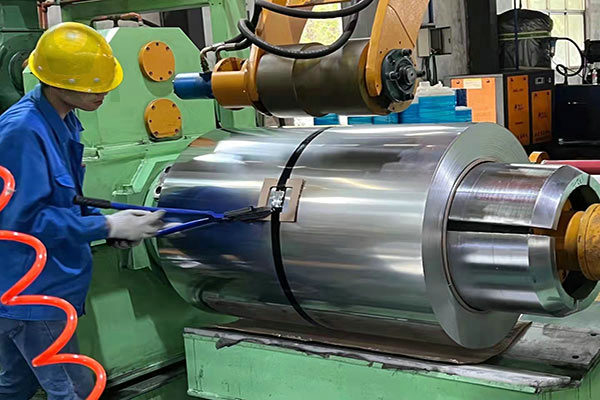
Hastelloy Alloy
Hastelloy Alloy Supplier and Manufacturer From China We provide high-performance Hastelloy Alloy materials designed to cope with corrosion, thermal stress, and high-temperature requirements in extreme
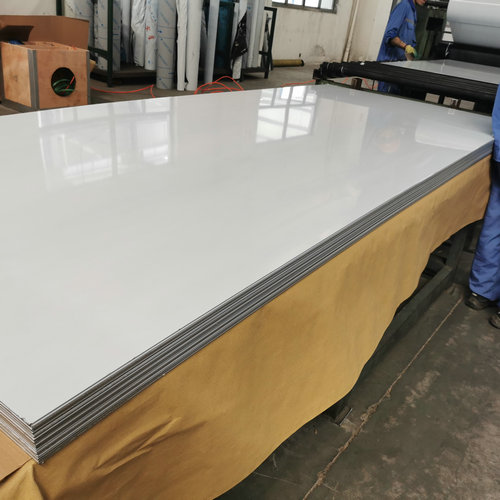
Stainless Steel
Stainless Steel Suppliers From China Huaxiao is one of the leading stainless steel suppliers & manufacturers in China, we can provide stainless steel plates, stainless
Stainless Steel vs. Hastelloy Alloy: Which One to Choose?
From the above differences between Stainless Steel vs. Hastelloy Alloy, the following conclusions can be drawn.
If your application requires extreme corrosion resistance, high-temperature strength or a special chemical environment, and you don’t mind the higher cost, Hastelloy is a better choice.
If your application is in a regular corrosive environment and has requirements for cost control, processing, and welding convenience, stainless steel (especially 316 stainless steel) is more suitable.
In Conclusion:
When it comes to choosing between Hastelloy and stainless steel for your metal needs, the final decision depends on the specific requirements of your application. Hastelloy alloys offer excellent corrosion resistance, especially in harsh environments involving corrosive chemicals or high temperatures, making them ideal for industries such as chemical processing, aerospace, and marine applications. However, they come with a higher price tag and require careful handling during machining and welding.
On the other hand, stainless steel offers excellent durability, corrosion resistance, and ease of fabrication, making it suitable for a wide range of industries such as food processing, medical, and general manufacturing. It is also more cost-effective and easier to work with, making it a popular choice for less extreme conditions.
Whether you choose Hastelloy or stainless steel depends on your environmental challenges, budget, and performance needs. For businesses seeking high performance in demanding conditions, Hastelloy alloys offer unmatched reliability. For those looking for a versatile, cost-effective option, stainless steel remains an excellent choice.
If you are looking to purchase Hastelloy or stainless steel products, you can choose us as one of your suppliers. We offer high-quality materials, including Hastelloy C-276, Hastelloy C-22, and a variety of stainless steel grades, at competitive prices and with reliable delivery. Contact us today for price of hastelloy vs stainless steel and more information.

